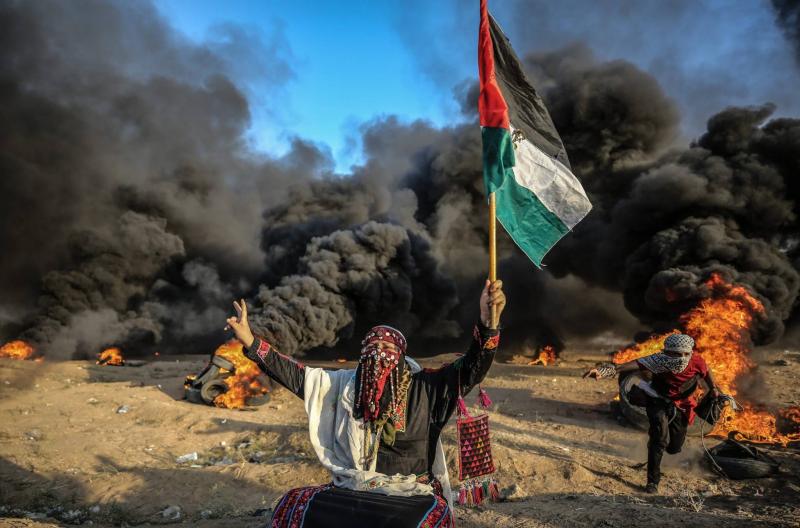The spotlight for Gaza is now on the ideas announced by U.S. President Joe Biden regarding a three-phase agreement for the release of hostages and detainees, a ceasefire, the entry of humanitarian needs, and enabling forcibly displaced persons within the sector to return to their neighborhoods until the reconstruction of humanitarian infrastructure and provision of housing and livelihoods after several months of suffering. We have moved beyond the stage of procrastination and the continuation of the status quo, and we are now at a decision-making moment. Some decisions are strategic while others are tactical and for the sake of maneuvering. Thus, I would not be surprised if an announcement were made about the parties not reaching an agreement and blaming the other side, or conversely, that they agree to the deal contingent upon differing interpretations.
There are significant international, regional, and national pressures to break the deadlock that negotiations have reached, in light of the rejection of inhumane practices and the genuine concern that matters may escalate in the Palestinian neighborhood in the southern sector towards Egypt, extending to Lebanon and beyond regionally. The United States is particularly pressing as the critical stages of the presidential elections approach, which might be decisive for Biden considering the positions of Americans who do not support his stances. Some are reacting to his tense relationship with Netanyahu and Israel on one hand, or those who feel his support for Israel allows it to exceed all legal and humanitarian bounds that necessitate respect for some humanitarian considerations.
I believe that Israel and Hamas do not mind reaching an agreement for various reasons, the most important being the internal pressures for the release of hostages concerning the Israeli Prime Minister, the desire to curb the momentum of the liberal Western and international current that is rejecting its practices and demanding accountability for it and its officials, and the growing international support for the Palestinian side.
There are several motivations that make Hamas responsive to the idea of reaching an agreement, including taking a breath and reorganizing its strategies after intense Israeli military pressure, alleviating the suffering of Palestinians under occupation in the sector, and benefiting from the fruits of international outrage against Israeli practices, which supports Hamas's standing among Palestinians.
I always avoid placing the occupying state and any Palestinian political faction regardless of its orientation on the same level, as the occupation is the great sin and the root of the problem and conflict, and this is what I want to reiterate here once again with all clarity.
Regardless of political maneuvers and compromises, it is hard to imagine the commitment of the current Israeli government, or any government led by Netanyahu, to an agreement that ends the conflict in Gaza, as this would immediately be followed by a phase of assessment, accountability, and political and judicial review, necessitating changes in personalities, positions, policies, and ideologies.
I also rule out the commitment of Hamas leaders, both in letter and spirit, to the terms of an agreement that includes American and Israeli conditions and demands, which undermine its influence and existence in Gaza and the entire Palestinian arena, especially in the absence of Palestinian consensus that provides it with another political role, along with the publicly declared Israeli position that it is pursuing Hamas and killing its leaders inside and outside Palestinian territories.
Therefore, if an agreement is reached, it reflects that Israel and Hamas are currently focusing on improving their international, regional, and national images by holding the other party responsible for rejecting the proposals indicated by the U.S. President. This has led Israel to affirm positions that are difficult for Hamas to accept, such as the statement that the war will continue even if an agreement is reached and that the new proposal does not include a text for ending the war at any phase. In contrast, Hamas reiterates that it will not accept any agreement that does not include the complete cessation of the war in Gaza, which Israel rejects.
In light of all these considerations and contradictions, I believe we are at a crossroads, on the verge of an agreement that the main involved parties do not oppose but also do not favor, and thus their serious commitment to it, especially from Israel, is unlikely, amid major escalations in Gaza and its surroundings, including Lebanon.
Nonetheless, I still advocate for the continued effort to push the parties towards reaching an agreement, as it remains the only way to stop the brutal killing of the struggling and heroic Palestinian people and an attempt to alleviate their humanitarian suffering, while ensuring that the agreement is comprehensive, detailed, and precise, or that additional quick steps are taken to complete it.
I will not comment today on the content of what has been published regarding the U.S. President's statements about the proposed agreement's clauses or elements, as the original completed texts were not available to me when writing these lines. My nearly five-decade experience in political and diplomatic work has taught me not to rely on what is stated or published for analysis.
Here, I will only note that any agreement reached from current or future efforts must include a complete and permanent ceasefire, the exchange of prisoners and detainees, provision of humanitarian needs, reconstruction and security for Palestinians, and security arrangements on the borders with the complete withdrawal of Israeli forces, situating all of this within a political context that leads us to a two-state solution of Palestine and Israel.
Therefore, in the case of reaching an agreement or even failing to do so, I suggest the issuance of a resolution from the UN Security Council that includes action on three axes... Firstly, a phased exchange of hostages and detainees and ceasefire and withdrawal of Israeli troops, along with the formation of an international force to provide security and monitoring inside the sector and on the borders, and intensifying food and humanitarian assistance. Secondly, establishing the Palestinian state based on 1967 borders and its capital as East Jerusalem under the United Nations trusteeship for two years, without affecting the recognitions that Palestine has received internationally and the responsibilities of the Authority according to previous agreements with Israel. Thirdly, initiating a two-year negotiation process stemming from the UN Security Council and under its auspices, to reach a solution based on two states according to the 1967 borders with Jerusalem as the capital of both states, while the Secretary-General and the five permanent members provide periodic reports on the progress of negotiations.
With these steps, we would have documented and completed any agreement reached, or provided a new framework for dealing with the Gaza war and beyond if the current efforts falter.




